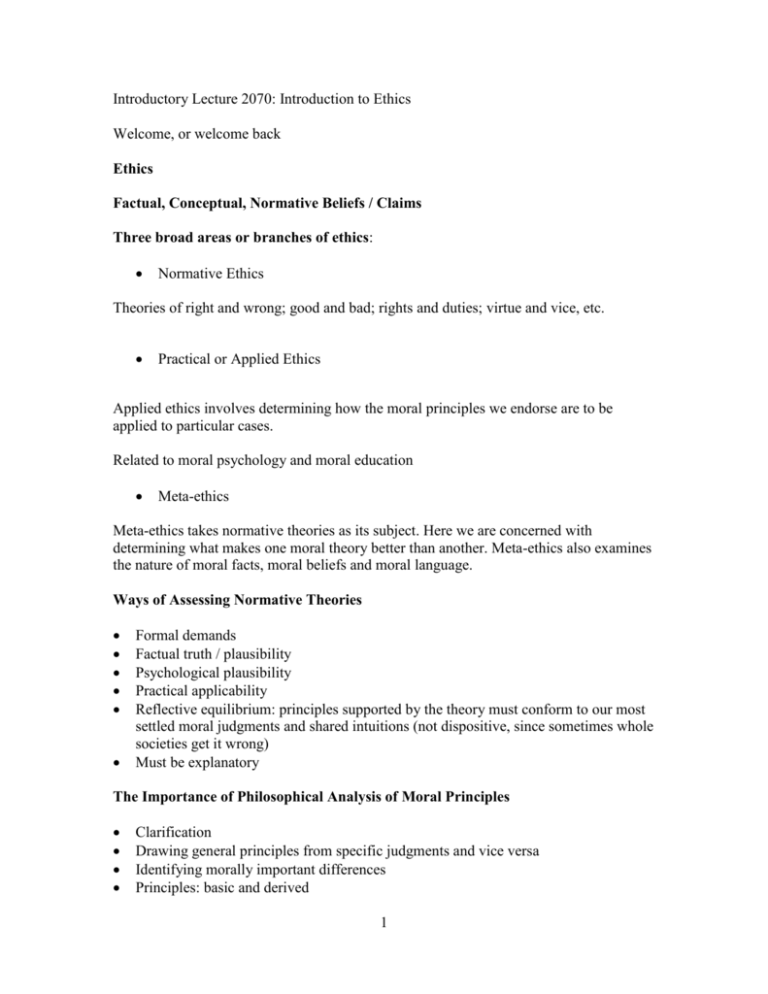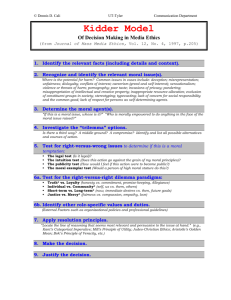Introductory Lecture 2070: Introduction to Ethics Welcome, or
advertisement

Introductory Lecture 2070: Introduction to Ethics Welcome, or welcome back Ethics Factual, Conceptual, Normative Beliefs / Claims Three broad areas or branches of ethics: Normative Ethics Theories of right and wrong; good and bad; rights and duties; virtue and vice, etc. Practical or Applied Ethics Applied ethics involves determining how the moral principles we endorse are to be applied to particular cases. Related to moral psychology and moral education Meta-ethics Meta-ethics takes normative theories as its subject. Here we are concerned with determining what makes one moral theory better than another. Meta-ethics also examines the nature of moral facts, moral beliefs and moral language. Ways of Assessing Normative Theories Formal demands Factual truth / plausibility Psychological plausibility Practical applicability Reflective equilibrium: principles supported by the theory must conform to our most settled moral judgments and shared intuitions (not dispositive, since sometimes whole societies get it wrong) Must be explanatory The Importance of Philosophical Analysis of Moral Principles Clarification Drawing general principles from specific judgments and vice versa Identifying morally important differences Principles: basic and derived 1 The role of non-moral assumptions Logical requirements Decision procedures Use of Counter-examples Bring out implicit scope restrictions Hypothetical counter-examples not useful against derived principles if they change the factual, non-ethical assumptions (denying the antecedent) Hypothetical counter-examples are relevant for criticizing basic principles, which are supposed to hold regardless of the factual conditions; their status as basic depends upon their support not resting on contingent non-moral facts. Fundamental Justification Can our moral principles be justified? Can we give an ultimate justification of our moral beliefs? Some philosophers allege that such justification is theoretically or conceptually impossible. That is where we start: with ethical relativism. The reading load is very modest. It is expected that students do the readings for each topic. Tutorial groups will make this part of the participation grade. 2







